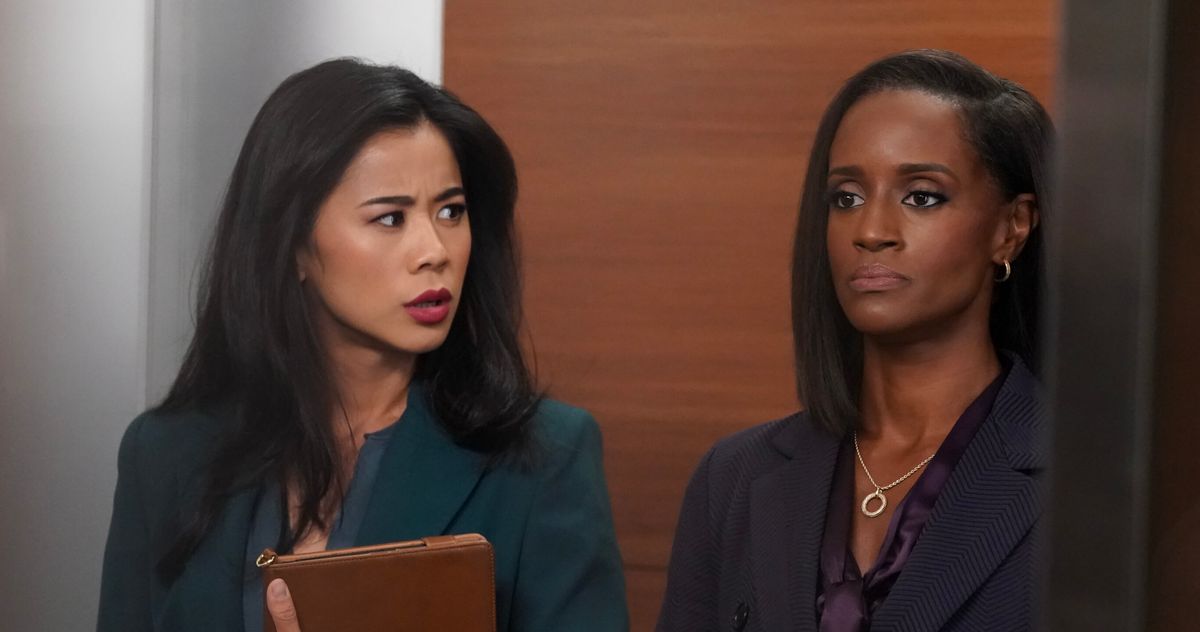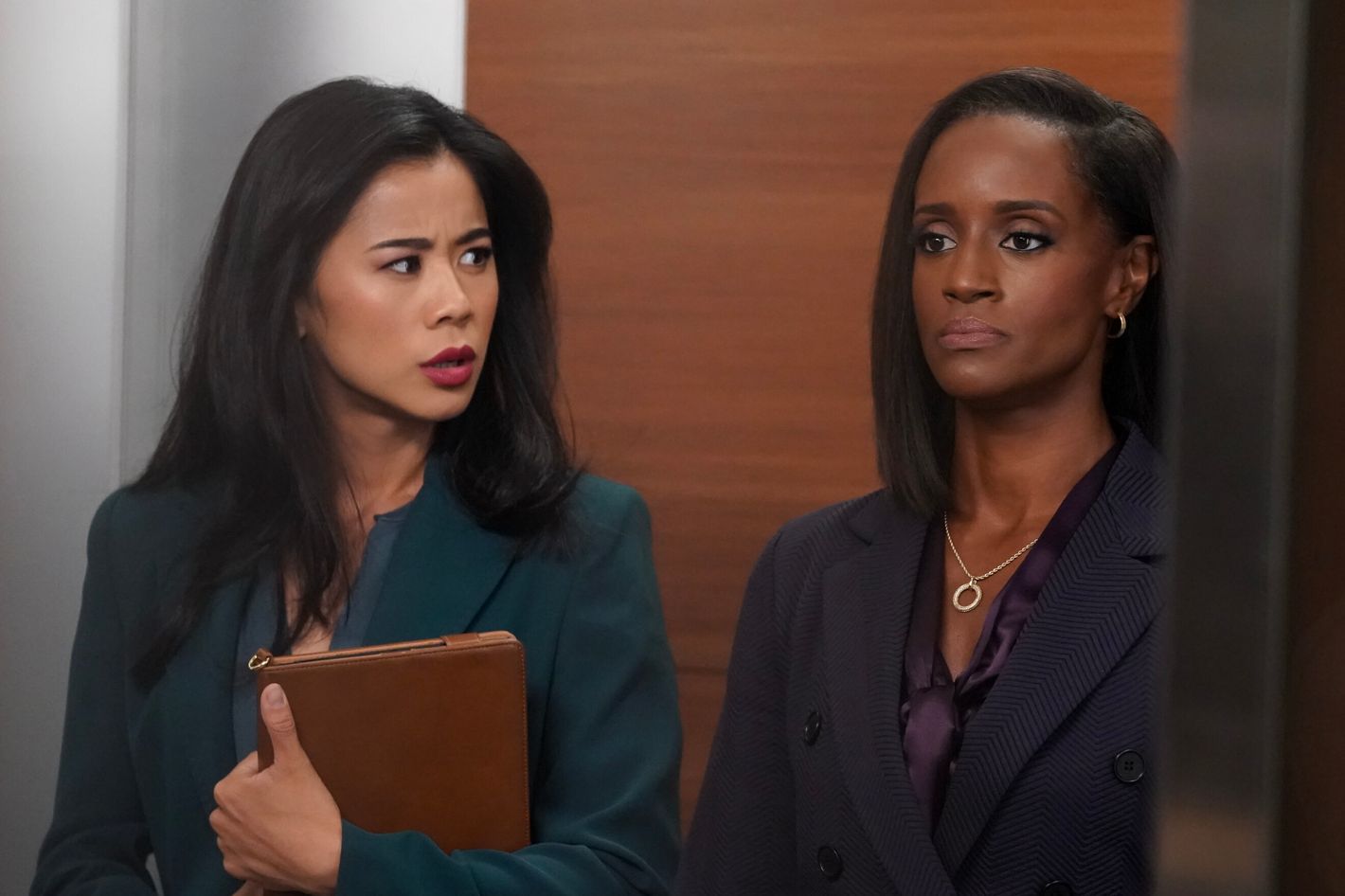Matlock Recap: Kramer vs. Kramer
A case reminds Matty of one of the biggest regrets of her life, and reminds us that Matty is capable of being very, very wrong.


Legal dramas are, by nature, stories about adversaries, and because of the ways we tend to process stories, when we watch shows about lawyers, it’s only natural that we choose sides. The Matlock writers know this. No, this series isn’t as ripe with moral ambiguity as some antihero-driven prestige drama. But over the course of this first season, Matlock has upended audience expectations more than once by revealing that the people we’d been encouraged to boo and hiss might not be so bad — and that even the protagonist, Madeline “Matlock” Kingston, can be wrong, wrong, wrong.
Take this week’s case, which I confess threw me for a bit of a loop, toying with my sympathies before delivering a resolution I’d call messy and emotionally unsatisfying. That’s not really a knock, though. The rug-pull was wholly intentional — and, I’ll argue, thematically on-point.
Let’s start with the client, who is an easy one to root for. Paloma Deleon (Greta Quispe) is a Mexican immigrant who helps other immigrants attain small business licenses. She’s in the middle of an ugly child support dispute with Bruno Cortez (Mauricio Mendoza), a brusque international business magnate who looks down on Paloma’s modest family origins. Paloma is seeking fair financial compensation from a very rich man. Bruno counters by seeking custody of their son Tenoch (Enzo Fabiani), a shy 7-year-old who, based on some of his behavior in this episode, may be on the high-functioning end of the autistic spectrum.
Complicating matters even further? Julian, aiming to play hardball with Olympia in their own divorce, takes on Bruno as a client. He claims in court that Paloma has been unfairly bad-mouthing Tenoch’s father and buying their son’s affection with slack discipline and extra screen time. Bruno appears to be a bully who doesn’t have Tenoch’s best interests at heart, and the rules of storytelling suggest that Julian will regret using this case to punish his soon-to-be ex-wife.
But that’s not how it all plays out. Olympia’s team struggles to nail down the most damning evidence against Bruno: that his volatile temper led to a public altercation with Tenoch’s soccer coach. And Paloma proves to be a difficult client. She admits to sharing details about Bruno’s womanizing with Tenoch; and she’s caught trying to take the kid to Mexico to visit her dying father, despite an order that she stay in the country. Then, when the court appoints a social worker to look after Tenoch while the custody hearing continues, Paloma barricades herself and her son in a Jacobson-Moore office.
Perhaps the biggest strike against Paloma’s case, though, is that Tenoch doesn’t seem to have any particular animosity toward his father. When his emotions get to be too much to bear, he self-soothes by sorting his soccer cards, and when a social worker asks which parent gives him that same feeling of calmness, Tenoch won’t choose. He says he just wants them to stop fighting, adding — heartbreakingly — “If it’s my fault, I’ll do something different.”
As for Julian, he never faces that “What have I become?” moment while defending Bruno. If anything, it’s Olympia who’s chagrined. After a dyspeptic, antacid-gobbling judge charges the bickering exes with contempt and sticks them in a holding cell, Olympia finally says, “What the hell are we doing?” She backs down from the aggressive stance toward the divorce that Matty had encouraged (for Matty’s own devious ends) and tells Julian she no longer wants a forensic accounting of his finances. The two then broker a deal for Bruno and Paloma that gives them both time with Tenoch and avoids anything that could look like a “win” for either side. Explaining the plan, Olympia quotes some wisdom from her father: “You can be right or you can be happy.”
And what’s Matty up to during all of this drama, you may ask? She’s more or less a silent bystander, less ready with a suggestion or insight than usual. This is because the Paloma/Bruno/Tenoch case has triggered memories of when she and Edwin sat in a California courtroom, arguing that their daughter Ellie (Marnee Carpenter) — who was in that same courtroom with them — should be relieved of custody of Alfie.
These scenes are harrowing for many reasons, but mainly because Ellie comes across as the wronged party. Matty is so cold and steely, as she and her attorney make every one of Ellie’s slip-ups seem like gross criminal negligence. Although Matty is, sadly, right about a lot of her suppositions — including her insistence that Ellie had lied about being on the wagon when the toddler Alfie burned himself — the tough love is, honestly, tough to take.
So Paloma’s plight rattles Matty, so much so that she suggests to the client — while she’s considering fleeing the country with Tenoch — that there is “One mistake I wish I could take back, every single day.” She’s referring to making a choice she never got the chance to reverse: taking Alfie from Ellie and arguably triggering her overdose.
Matty has a lot of regrets. And it’s no help that Edwin, who was by her side through the whole Ellie ordeal, quietly second-guessed her decisions. (In one of the court proceedings, Ellie pleaded with Edwin to make Matty stop.) This episode begins with one of those nightmare sequences the Matlock drops occasionally, showing Edwin dreading what will happen if Matty realizes he lied about finding an email from Alfie’s possible father. Then at the end of the episode, Matty does discover the lie, and, in a raw moment, asks Edwin if he blames her for Elle’s death.
His pained but honest answer? “Sometimes.” Even to her own husband, Matty isn’t always the hero.
Hot Doggin’
• Sarah has a strong week overall, turning setbacks into wins. She uncovers one of the key pieces of evidence against Bruno when she discovers that Paloma’s next-door neighbor has a surveillance camera in her flower bushes. Before that revelation, though, she irks said neighbor with a rant about the racist history of Neighborhood Watch programs. (The neighbor: “Are you here to give me a copy of White Fragility? Because I already own it.”)
• Sarah initially struggles in her self-appointed role as Olympia’s mentee. She’s not up to speed on her boss’s personal life the way Matty is, and she doesn’t get the reference when Olympia announces her court clash with Julian by saying, “Get ready for Kramer vs. Kramer.” (Sarah: “Was that an old case you worked on?”) But Olympia’s encouragement to “take a beat and think” does help Sarah get close enough to Paloma’s neighbor to find the camera, earning her a “you did good work today” from her mentor. (Whether “good lawyering” should equate to “can find a hidden camera” is a question for another day.)
• Sarah also eventually gets Billy to accept her “super-sorry” and then calls him her “mentor in being nice.” Before this happens, Billy takes a private dig at Sarah by secretly flirting with her nemesis: Simone Delgado (Andrea Londo), a law school colleague who clerked at the Supreme Court and now works with Julian. Billy briefly gets rattled when he discovers that Simone played mind games with Sarah by stealing her mints (after suggesting, “girl to girl,” that she had “the teeniest bit of breath thing going on”). But by the end of the episode, he seems determined to pursue this potential romance. “She seems nice,” he lies to himself.
• On the “Matty investigates Jacobson-Moore” front, her big move this week is to steal Julian’s key card, which contains a record of all his movements inside the office. She hopes this will prove he was in the documents room when the missing Wellbrexa file arrived.
• I think there are six episodes left this season, and if you’re wondering when Matty’s finally going to shift from undercover agent to aggressor, you might want to take note of the titles for the next three episodes: “Pregame,” “Game Day” and “Game Face.” See you next week!








